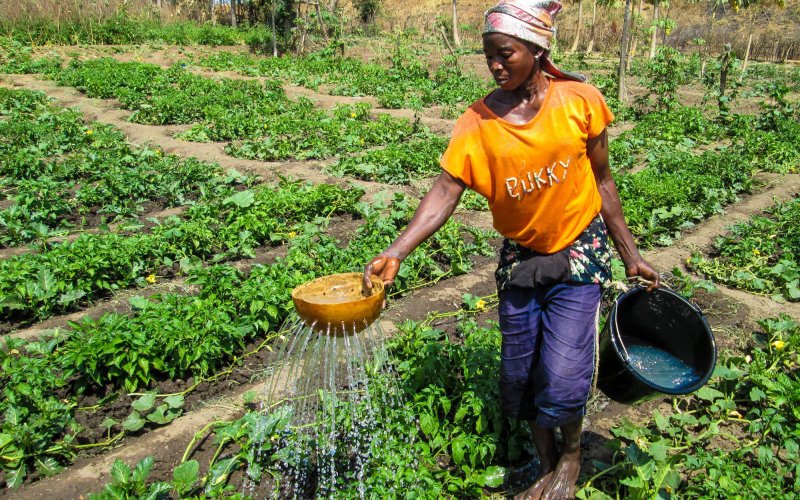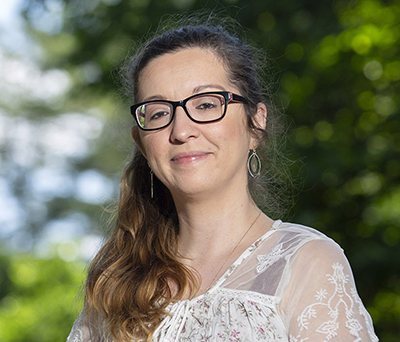Using Artificial Intelligence to Aid Farmers in Ghana

ALBANY, N.Y. (Nov. 18, 2021) — From the agricultural revolution through the present, farming remains central to the sustainability and advancement of humanity. After 12,000 years of human agricultural production, there are about 570 million farms on the planet according to the United Nations, providing sustenance for the world's nearly 8 billion inhabitants.
Nearly 90 percent of these are "smallholder" farms, less than five acres in size and often managed by and supporting a single family.
As part of a Google initiative to help academics and nonprofits develop Artificial Intelligence (AI) techniques that can improve people's lives, University at Albany Assistant Professor of Electrical and Computer Engineering Daphney-Stavroula Zois is working with AGRI-WEB to help smallholder farmers in Ghana develop better prediction models for their crop yields.

The project, "Towards Achieving Better Market Access for Smallholder Farmers," would help farmers in the African nation provide food and nutrition security, as well as to help stabilize and develop their income. The project also could help in the overall economic development of the nation and serve as a model to similar countries throughout the continent and across the world.
"Our main goal is to use AI to help predict post-harvest shortage/glut, which would enable smallholder farmers to increase their profits and provide secure food supplies," said Zois, who directs the IMAgINE Lab at the College of Engineering and Applied Sciences.
This includes research to help farmer collectives with market intelligence and use data to improve crop and irrigation planning.
The project is one of 30 funded by Google in 2021 as part of its "AI for Social Good" endeavor, which aims to apply AI to some of the world’s biggest challenges through research, engineering and initiatives to build the AI ecosystem.
Each project team will receive funding, technical contributions from Google and access to computational resources.
"The College of Engineering and Applied Sciences is committed to the development and application of science in service to society," said CEAS Dean Kim L. Boyer. "Google’s AI for Social Good initiative fits naturally into that framework, and we are very proud to see Dr. Zois' work among the small number they have chosen to support. Google’s high-profile recognition underscores the continuing emergence of CEAS onto the world stage."
Based in Ghana, Zois' partner is AGRI-WEB, a nonprofit organization that connects a diversity of members and partners dedicated to creating financial freedom and growth opportunities through investing in agricultural activities. Their focus is aimed at developing and implementing the best systems, businesses and technology to sustain Ghana's collective agricultural interests. Their overall goal is to strengthen agricultural enthusiasts for a more profitable, sustainable and inclusive approach towards farming.




